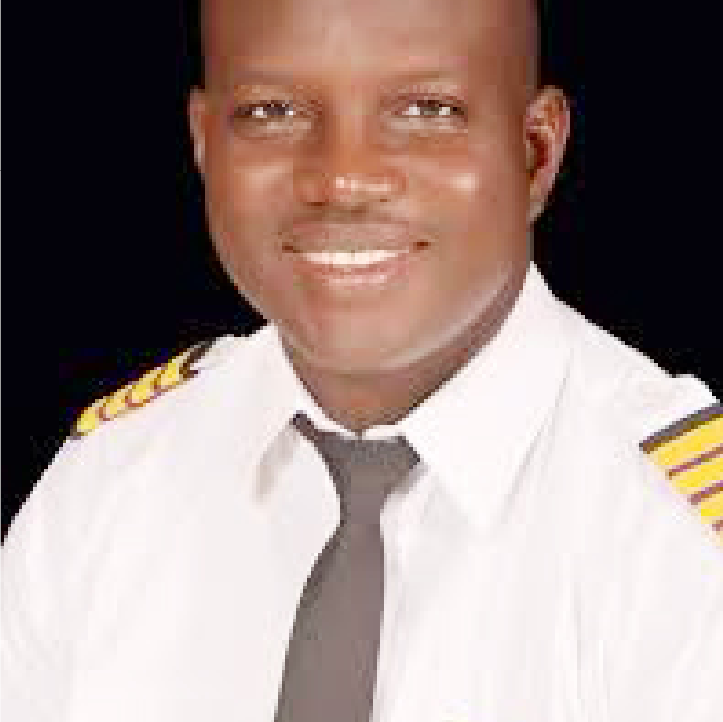President of the National Association of Aircraft Pilots and Engineers (NAAPE), Comrade Abednego Galadima in a chat with our correspondent as the association marks its 40-year anniversary this year highlights the challenges confronting pilots and engineers and the entire aviation industry. Excerpt!
Looking at NAAPE in the last 40 years, how have you navigated the challenges, different policy shifts, different happenings within the aviation ecosystem?
These 40 years have been challenging, full of ups and downs. I am the 13th President of NAAPE. We have seen steady growth, we have been able to improve the lots of our members and we have also evolved from just one branch in the defunct Nigeria Airways to over 10 branches. Though we still have issues with the airlines, most of them still have misunderstandings of what unions stand for. Some of them are still resisting, not allowing their members to unionise. We see that as an ignorant position.
Many young pilots and engineers have complained about unemployment. Is NAAPE worried about this? Also, what are you doing about airlines refusing to allow their staff to join your union?
The fact that young pilots and engineers who do not have employment opportunities worries us because even when they want to be our members, they cannot be because they do not have jobs, and cannot pay the subscription fee. It is a challenge for us because airlines are poaching from one another without training. If you are going to be a pilot or an engineer, you have to be trained yourself, unlike in the days of Nigerian Airways, when people were trained to become pilots and engineers. These days, that is not done.
Part of what we are contending with is the issue of some airlines not allowing our members to organise freely. I tell you what, most of these airlines that resist unionisation are the ones owing pilots and engineers pensions. They are the ones who ensure that some of these packages to which their employees are entitled are not paid. We know they are running away from obeying the rules and regulations of the land. They do not want a union that would disagree with them or ensure they are up to date with payment of pensions or other remittances.
In some instances, airlines that resist unionisation even deduct taxes without remitting. Dana, for instance, collapsed with unpaid pensions and salaries. Unionising should be viewed from the point of safety for employees, where workers are allowed to work and operate freely. Because they know that somebody has their back, they are not working under an atmosphere of intimidation or fear.
Like we experience in other professions in Nigeria, is there also brain drain among pilots and engineers?
Yes absolutely to the extent that I remember, there was a time when we looked for a 737 captain. We could not find a captain on a 737 aircraft to be employed in Nigeria. The statistics are clear. You find out that most of them have moved to Emirates, RwandAir, Asky Airlines, for instance. Many of those from the defunct Dana, many of them from the Nigerian College of Aviation Technology, NCAT, have moved to Asky, Emirates.
It is a market. It is what they call a free market economy. People would normally want to be sure that they have the right operating atmosphere. So, in a competitive market like this, a free market economy, when you have the potential of getting $10,000 and somebody is giving you $5,000, where would you go? You would definitely go to that which would pay more. That is the idea.
Brain drain is not something that can be stopped through regulation. What is needed to change the situation is to improve the market. Remember what Richard Branson said: ‘once you treat your workers well, they will treat the business well.’ This includes their pay and remuneration, among other things. So, the rate of attrition in most of these airlines is high because the conditions are still not optimal. They are just poaching, and nobody is training. That is where the problem is. You have to go and poach from airline A, airline B will come and poach from airline C, you know, like that.
We have to invest in training. Part of the complaints given by the airlines is that some of these young pilots do not have the required number of hours. What can be done is to have a very robust general aviation policy, so that these young pilots can build their hours from the general aviation end before transitioning into commercial. That is the way to go, and it all boils down to training. They will use general aviation, small aircraft, get trained, build hours and then, from time to time, get jet experience, and then move on. And it is critical for us as a nation because we need to be mindful of succession planning.
Where do you see the industry in the next eight to 10 years considering the brain drain we are experiencing?
I do not want to be over-optimistic, but the industry is growing, and steadily so. So, I see the economy expanding. I see the industry, the ecosystem, opening up for pilots and engineers. I do not want to sound pessimistic. In the next 10 years, the aviation industry will grow, and more employment opportunities will come, going by what is happening now. On Wednesday, I heard that Embraer is coming to have a maintenance, repair and overhaul, MRO, facility with Air Peace in Nigeria. Once we have such a needed investment in the industry, then unemployment will also be a thing of the past for our young people.
How do we address the rising cases of unruly passengers?
I think what we need to do is pay attention to sensitising the stakeholders, particularly members of the flying public. Some of these key regulations will have to be made public. We must embark on mass education. That is on one hand. On the other hand, we have to look inward. And I am happy the Minister of Aviation and Aerospace Development, Mr Festus Keyamo, has directed that the airlines should train their crew. Also, there has to be a way of balancing the relationship between airlines and passengers.



